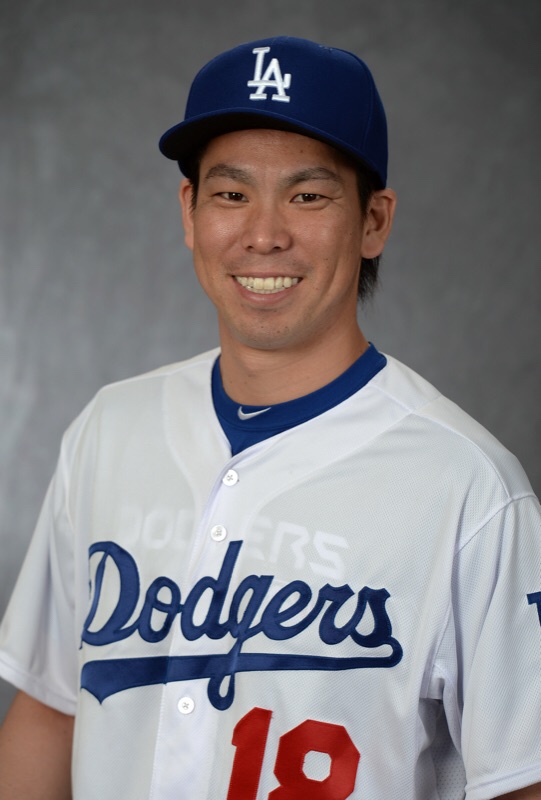Is this the end of the road for Kenta Maeda in the Major Leagues? The Detroit Tigers have made the difficult decision to designate the veteran right-hander for assignment, signaling a potential conclusion to his MLB career after a disappointing start to his tenure in Detroit.
The news broke on Thursday, sending ripples through the baseball world. After just a month into his second season with the Tigers, the team decided to part ways with the 36-year-old pitcher, who had struggled significantly on the mound. His earned run average (ERA) ballooned to 7.88, a performance that fell far short of expectations and the standards set by Maeda himself throughout his career. The decision reflects the harsh realities of professional sports, where performance dictates longevity, and even established veterans are not immune to the pressures of the game. The move, made as the Tigers were playing in Anaheim, California, ended a union that both the team and the player had hoped would yield better results.
| Attribute | Details |
|---|---|
| Full Name | Kenta Maeda |
| Date of Birth | April 11, 1988 |
| Place of Birth | Tottori, Japan |
| Height | 6 ft 1 in (185 cm) |
| Weight | 206 lb (93 kg) |
| Position | Pitcher (Right-Handed) |
| Current Team | Detroit Tigers (Designated for Assignment) |
| MLB Debut | 2016 |
| Prior Teams | Hiroshima Toyo Carp (NPB), Los Angeles Dodgers |
| Awards and Achievements | Sawamura Award (2015, 2017), All-MLB Second Team (2020), MLB Player of the Week (2020) |
| Contract Details | Signed a two-year contract with the Tigers |
| Notable Stats | Known for his control and ability to mix pitches. His performance suffered in his second season with the Tigers, leading to his designation for assignment. |
| Reference Website | MLB.com Player Profile |
The Tigers' decision to designate Maeda for assignment means that the team now has a period of time, typically a week, to either trade, release, or outright assign him to the minor leagues. Given his struggles and age, it's likely that the team will release him, allowing him to explore options elsewhere. This move opens up a spot on the 40-man roster and the active roster, which the Tigers filled by recalling right-handed pitcher Tyler Owens from Triple-A Toledo. This signals a shift in the team's priorities, focusing on developing younger talent and reshaping the pitching staff for the future.
Maeda's journey to the majors was marked by success. Before joining the Dodgers, he was a star in Japan, pitching for the Hiroshima Toyo Carp. His accomplishments there included winning the prestigious Sawamura Award twice, the equivalent of the Cy Young Award in Nippon Professional Baseball (NPB). His transition to MLB was initially promising, with a solid debut season for the Dodgers. However, his performance has fluctuated, and his tenure with the Tigers has been particularly challenging. His effectiveness took a hit, and he struggled to find the form that had defined much of his career.
The move to the bullpen didn’t provide the spark needed. The veteran's struggles were evident in his recent outings, with concerning statistics. This downturn in performance ultimately led to the team’s decision to make a change. The news generated considerable discussion among fans and analysts, with many reflecting on the cyclical nature of professional sports. As one veteran’s time potentially comes to an end, the Tigers will look toward the future.
For Maeda, this designation represents a crossroads. While his MLB career might be over, he still possesses experience, knowledge, and a deep understanding of the game. His next move is uncertain, but his legacy includes contributions to the sport, and success in both Japan and the United States. Whether he seeks to continue his career elsewhere or explore other opportunities remains to be seen. Regardless, his story is one of perseverance, achievement, and the ever-present challenge of staying at the top in the competitive world of professional baseball.
The Tigers, meanwhile, will look to the future. The recall of Tyler Owens represents their commitment to nurturing young talent, and rebuilding their pitching staff for the challenges of the season ahead. The decision to move on from Maeda underscores the need for a team to constantly evolve and adapt, making difficult choices in pursuit of success.



